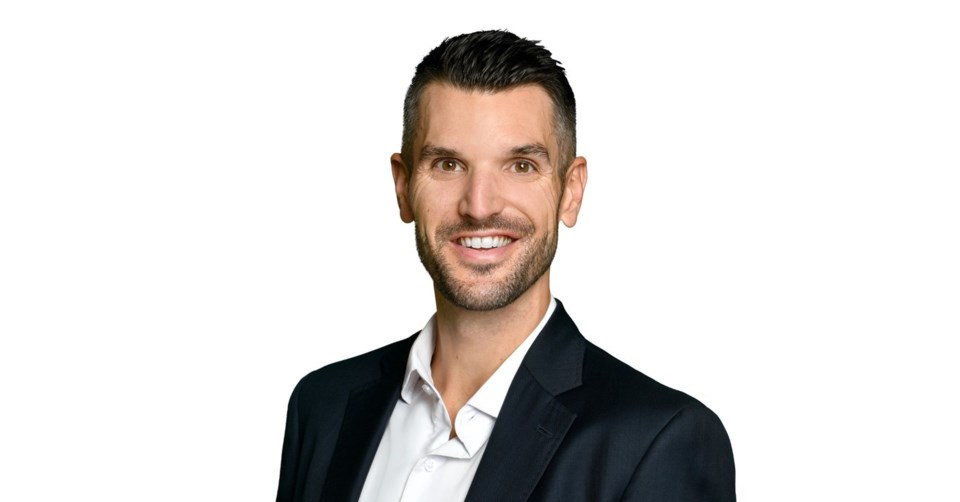The average cost of raising children is nearing $300,000, according to Statistics Canada — and that’s only up until 17 years old. Post-secondary education is not included, and how many 17 year olds are fully self-supporting?
Having kids is more expensive than ever — inflation, housing and the cost of living are all in play — but experts say generational differences in child-rearing norms is likely another factor.
It’s possible modern childhoods are also just busier and pricier, said Matthew Kempton, portfolio manager at Verecan Capital Management in Halifax.
“I think the social media effect of being a parent has had a real impact,” he said, noting the typical unstructured childhoods of prior generations.
“It was OK if we just had an old bike and biked around with our friends and played and spent our time doing nothing. There’s been a bit of a shift and that shift doesn’t come free.”
Sometimes there’s pressure to have the best of everything for a child — but toddlers don’t know how much their stroller cost, Kempton pointed out.
StatCan figures show that higher earners spend even more on their kids, and these costs can exceed $400,000 to raise a child to 17 years old.
Barbara Knoblach sees it happen. The Edmonton-based financial planner with Money Coaches Canada has a client with a six-year-old in roughly a dozen classes from piano to dance to art classes. Other clients mentioned wanting to raise their children with “minimal extras” but once kids came along, she said they started spending more and more.
“Parents often justify these decisions as investments in their children’s future, or wanting to ensure their child doesn’t fall behind in comparison to other children,” Knoblach said.
“There’s a strong element of peer pressure at play ... Especially among higher-income families, there’s often a competitive edge when it comes to giving children memorable experiences and enrichment.”
Despite the costs, younger people thinking about starting a family shouldn’t be dissuaded. In StatCan’s calculations that breakdown the costs of raising a child, almost a third of the total figure is housing — which Knoblach says may be exaggerated.
“Assuming the family already owns a home or rents a property of adequate size,” she said, “the additional costs incurred for housing may not be all that high.”
Most people will also make more money as they progress in their career, said Kate Childerhose, financial adviser with Edward Jones, based in London, Ont.
Although she acknowledges it’s common to want your children to have things that you didn’t have, parents should still set boundaries. Childerhose started her own family in her 20s; she and her husband kept costs reasonable by “putting the hammer down.”
“We said, ‘Only one activity, because there’s three of you. We have to drive you. We have to do all those things,’” Childerhose said. “So we made a choice as a family to set some parameters.”
Young couples shouldn’t assume busy and expensive childhoods are better, Kempton said. Putting financial stress on the family or working extra hours doesn’t mean happier children. The opposite may be true, he said.
“I think you very much can still raise kids on a budget,” Kempton said. “I think it’s actually healthy for the children as well. Part of what we do [as advisers] is try to help multiple generations of families — and you want to raise children who have an understanding of money.
“In fact, in doing it, you’ll raise children who, when they come out on their own, they’ll be more confident and capable.”
The “dive in” and “roll with it” childhoods are still doable, Childerhose said. Between hand-me-downs and help from loved ones and the community, the lifetime costs are manageable year by year, with good communication and expectations.
“Having a child is so exciting,” Childerhose said. “But it’s really important to sit down and have those conversations: What’s important to us? What are the things that are non-negotiable, and what can we live without?”
A stable income, community resources and tax benefits available to parents are a solid foundation, Knoblach said, in addition to having a budget or financial plan that includes child care costs and reduced income during parental leave.
Kids can thrive with unstructured time too, she added — an opportunity to rest, be bored, and explore. Freedom and creativity have value, but don’t cost much.
“Many families successfully raise children on modest budgets by prioritizing needs over wants, and being intentional with spending,” Knoblach said.
“Parenthood doesn’t require perfection — it requires commitment, adaptability, and a plan.”
This report by The Canadian Press was first published April 29, 2025.
Nina Dragicevic, The Canadian Press




